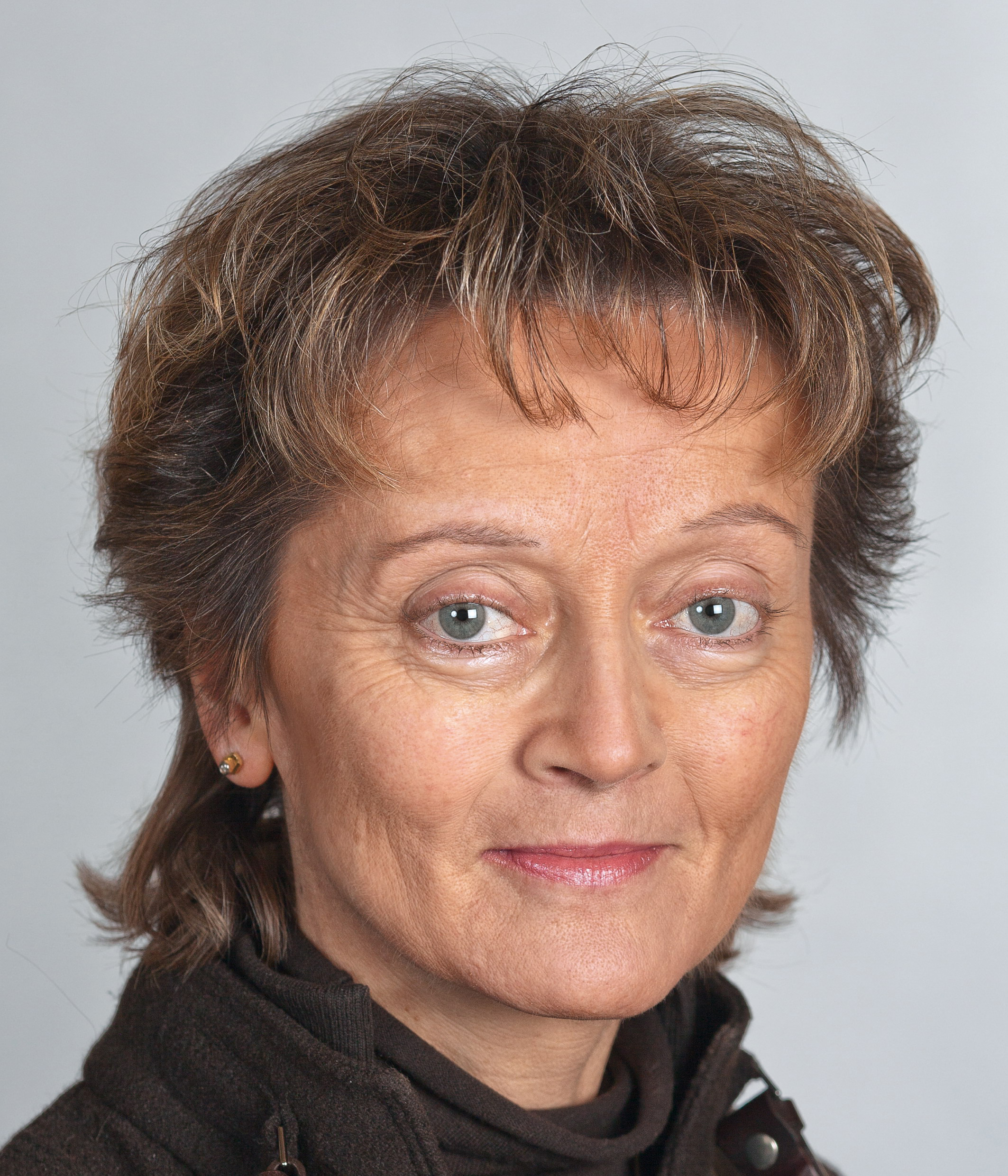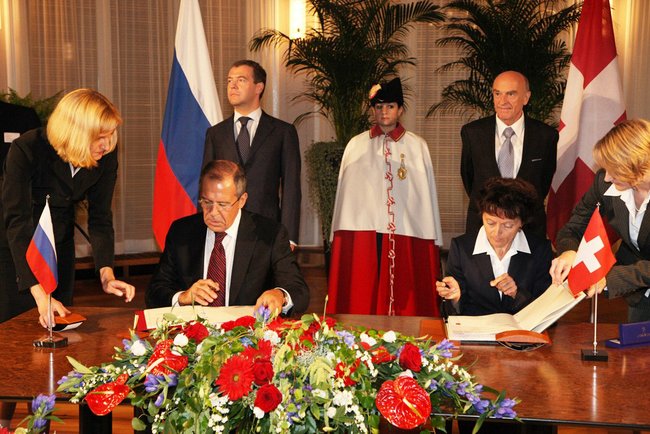1. Overview
Eveline Widmer-Schlumpf, born on March 16, 1956, is a prominent Swiss politician and lawyer whose career significantly impacted the Swiss political landscape, particularly through her challenging of conventional party loyalty and her ascent to high office. Initially a member of the right-wing Swiss People's Party (SVP), her election to the Swiss Federal Council in 2007 against her party's preferred candidate led to her expulsion and the subsequent formation of the Conservative Democratic Party of Switzerland (BDP), a more centrist political force. This pivotal moment is often viewed as a move that diversified Swiss political representation and fostered democratic adaptability.
During her tenure as a Federal Councillor from 2008 to 2015, Widmer-Schlumpf held crucial portfolios, first as the head of the Federal Department of Justice and Police from 2008 to 2010, and then as the head of the Federal Department of Finance from 2010 to 2015. Her leadership culminated in her serving as Vice President of the Confederation in 2011 and as President of the Swiss Confederation in 2012. As the sixth woman to be elected to the Federal Council and the fourth woman to hold the presidency, Widmer-Schlumpf distinguished herself as a pioneering figure, breaking traditional barriers and contributing to the representation of women in Swiss governance. Her political journey, marked by independence and a willingness to reshape party alignments, underscores her lasting impact on Swiss democratic processes and her role in advocating for a broader spectrum of political engagement.
2. Early Life and Background
Eveline Widmer-Schlumpf's early life and educational pursuits laid the foundation for her distinguished career in Swiss politics and law.
2.1. Family and Birth
Eveline Widmer-Schlumpf was born on March 16, 1956, in Felsberg, Graubünden, Switzerland. She is married and has three children. Her familial background is notable in Swiss politics as she is the daughter of Leon Schlumpf, who himself served as a Federal Councillor from 1979 to 1987. This makes her the second Federal Councillor in Swiss history, after Eugène Ruffy, whose father had also held the same esteemed office. Widmer-Schlumpf further holds the distinction of being the sixth woman ever elected to the Swiss Federal Council, marking her as a significant figure in the progression of gender representation in Swiss federal politics. She also served as a patron of the project SAFFA 2020German, alongside Federal Councillors Doris Leuthard, Simonetta Sommaruga, and former Federal Councillor Micheline Calmy-Rey.
2.2. Education and Legal Career
Widmer-Schlumpf pursued her higher education in law, receiving her degree from the University of Zurich in 1981. She furthered her academic achievements by obtaining her LLD in 1990. Following her studies, she embarked on a professional career as a lawyer, practicing from 1987 to 1998. Her judicial career began in 1985 when she was elected to the district court of Trin, where she later served as its presiding judge from 1991 to 1997. These early experiences in law and the judiciary provided her with a strong foundation in legal principles and practical governance, which would prove invaluable in her subsequent political roles.
3. Cantonal Political Career
Widmer-Schlumpf's political career began at the cantonal level in Grisons, where she gained significant experience and established her reputation as a capable public servant.
3.1. Grisons Political Activities
As a member of the Swiss People's Party, Eveline Widmer-Schlumpf was elected to the Grand Council of Graubünden (Grisons) in 1994, serving until 1998. In 1998, she achieved another milestone by being elected to the cantonal government of Grisons, becoming the first woman to hold such a position in the canton. Her leadership within the cantonal government was further recognized when she served as its president in both 2001 and 2005. Her extensive experience in cantonal politics, encompassing both judicial roles and executive leadership, prepared her for a transition to the national political arena.
4. Election to the Swiss Federal Council
The election of Eveline Widmer-Schlumpf to the Swiss Federal Council in 2007 was a pivotal and contentious event that significantly reshaped the Swiss political landscape.
4.1. Candidacy and Election
In the 2007 Swiss Federal Council election, Eveline Widmer-Schlumpf was put forward as an alternative candidate to the incumbent Federal Councillor Christoph Blocher, who was a prominent figure from the right-wing Swiss People's Party (SVP). Her candidacy was notably supported by the Christian Democrat, Social Democrat, and Green parliamentary factions, reflecting a broad, center-left alignment against the SVP's hardline stance. In the first round of voting, Widmer-Schlumpf received 116 votes, narrowly surpassing Blocher's 111 votes. The subsequent second round saw her secure her election as the 110th Federal Councillor with 125 votes, while Blocher received 115 votes, with 6 votes being spurious, empty, or invalid. She formally accepted her election on December 13, 2007, a decision that would lead to unprecedented political developments in Switzerland.
4.2. Initial Portfolio: Justice and Police
Following her election to the Federal Council, Eveline Widmer-Schlumpf assumed responsibility for the Federal Department of Justice and Police, taking over Christoph Blocher's former portfolio. Her tenure as the head of this department began on January 1, 2008, and lasted until October 31, 2010. This crucial role involved overseeing matters related to justice, internal security, immigration, and police affairs, placing her at the forefront of key domestic policy areas for the initial period of her service in the federal executive.
5. Party Affiliation and Political Transition
Eveline Widmer-Schlumpf's election to the Federal Council triggered a profound crisis within the Swiss People's Party (SVP), leading to her political realignment and the formation of a new political entity.
5.1. Break with the Swiss People's Party
Immediately following her election to the Federal Council without the support of her party, Eveline Widmer-Schlumpf faced intense opposition and condemnation from the national leadership of the Swiss People's Party. They openly denounced her as a "traitor" for accepting a position that they perceived she had won against the party's will. In an unprecedented move, she, along with her colleague Samuel Schmid, was excluded from the SVP parliamentary group's meetings. The conflict escalated on April 2, 2008, when the national party leadership publicly demanded that Widmer-Schlumpf resign from the Federal Council immediately and leave the party. Her refusal to comply with this demand set the stage for a significant rupture within the Swiss political establishment. As Swiss political parties are structured as federations of cantonal parties, the national SVP leadership could not directly expel her. Instead, on June 1, the SVP national party expelled its entire Grisons section for its refusal to expel Widmer-Schlumpf.
5.2. Foundation of the Conservative Democratic Party
In direct response to their expulsion from the national Swiss People's Party (SVP), the former SVP Grisons section, which had stood by Eveline Widmer-Schlumpf, took the decisive step of forming a new political entity: the Conservative Democratic Party of Switzerland (BDP). This new party positioned itself as a more centrist alternative to the increasingly right-wing SVP. The SVP's Bern section, to which Samuel Schmid (another Federal Councillor who had similarly incurred the SVP's displeasure) belonged, also joined the newly formed BDP. This political schism marked a significant shift in Swiss party politics, creating a new force that aimed to bridge the gap between traditional conservative and more moderate viewpoints, and providing a platform for those disaffected by the SVP's hardline stance. The BDP continued to exist until 2021, when it merged into The Centre, further consolidating the political landscape.
6. Federal Council Service
Eveline Widmer-Schlumpf's tenure in the Federal Council was marked by her leadership in key departments and her service in the highest offices of the Swiss Confederation.
6.1. Head of the Federal Department of Finance
Following a reshuffle of portfolios that occurred after the 2010 Swiss Federal Council election, Eveline Widmer-Schlumpf transitioned from the Department of Justice and Police to assume the role of head of the Federal Department of Finance. She replaced the outgoing Hans-Rudolf Merz in this critical position, which she held from November 1, 2010, until December 31, 2015. In this capacity, she was responsible for Switzerland's fiscal policy, budget, and financial stability, overseeing crucial economic matters during a period of global financial challenges.
6.2. Vice President and President of the Confederation
Eveline Widmer-Schlumpf's distinguished service in the Federal Council led to her election as Vice President of the Confederation for 2011, serving alongside then-President Micheline Calmy-Rey. Her ascent continued when, on December 14, 2011, she was elected President of the Swiss Confederation for the year 2012. This marked a significant milestone, as she became the fourth woman to hold the prestigious presidential post, following Ruth Dreifuss (1999), Micheline Calmy-Rey (2007 and 2011), and Doris Leuthard (2010). Her presidency was particularly notable as she was the third woman in a row to hold the office, and due to a high rate of turnover within the Federal Council in preceding years, she was also the longest-serving member among those who had not yet served as president, underscoring her seniority and steady rise within the federal executive.

7. Resignation and Post-Council Activities
Eveline Widmer-Schlumpf concluded her distinguished service in the Swiss Federal Council after years of significant contribution to national governance.
7.1. Decision to Not Seek Re-election
Following the 2015 Swiss federal election, in which the Swiss People's Party (SVP) achieved a record vote of over 29%, a shift in the political landscape occurred. On October 28, 2015, Eveline Widmer-Schlumpf announced her decision not to seek re-election to the Federal Council. Her departure marked the end of her eight-year tenure in the federal executive. She was subsequently succeeded by Guy Parmelin as a member of the Federal Council.
8. Writings
Beyond her political and legal career, Eveline Widmer-Schlumpf also made a notable academic contribution through her scholarly work.
8.1. Doctoral Thesis
Eveline Widmer-Schlumpf is the author of a doctoral thesis titled Voraussetzungen der Konzession bei Radio und Fernsehen (Requirements for Radio and Television Concessions). This academic work was published in 1990 by Helbing und Lichtenhahn in Basel. Her thesis demonstrates her in-depth understanding of media law and regulatory frameworks, showcasing her intellectual contributions beyond her public service.
9. Assessment and Impact
Eveline Widmer-Schlumpf's political career, particularly her break from the Swiss People's Party and her rise to the presidency, had a significant impact on Swiss governance and its democratic evolution.
9.1. Contributions and Achievements
Eveline Widmer-Schlumpf's contributions to Swiss governance are multifaceted and impactful. Her most significant act, from a perspective emphasizing democratic development and political diversity, was her decision to accept her election to the Federal Council in 2007, despite it being against the explicit wishes of her party, the Swiss People's Party (SVP). This act of political courage led directly to her expulsion from the SVP and the subsequent formation of the Conservative Democratic Party of Switzerland (BDP). The creation of the BDP provided a new, more centrist voice in Swiss politics, fostering greater political pluralism and offering a viable alternative for voters who found the SVP's increasingly hardline stance unpalatable. This move contributed to a more balanced and representative multi-party democracy.

Beyond party politics, Widmer-Schlumpf's ascent as a woman in Swiss federal politics is a notable achievement. As the sixth woman to be elected to the Federal Council and the fourth woman to serve as President of the Confederation, she served as a pioneer, inspiring greater gender representation in high office. Her tenure as head of both the Federal Department of Justice and Police and subsequently the Federal Department of Finance demonstrated her versatility and competence in critical areas of national policy. Her leadership during her presidency in 2012 highlighted her ability to unite different factions and steer the country through its federal executive responsibilities. Her patronage of the SAFFA 2020 project further underscored her commitment to social issues and women's roles in society.

9.2. Criticisms and Controversies
The most significant controversy associated with Eveline Widmer-Schlumpf's political career stems directly from her election to the Federal Council in 2007. The national leadership of the Swiss People's Party (SVP) vehemently opposed her acceptance of the election, which was secured through the support of other political factions. The SVP publicly branded her a "traitor" for what they viewed as an act of disloyalty to the party's official candidate, Christoph Blocher. This led to her exclusion from SVP parliamentary group meetings and an explicit demand from the party's national leadership for her to resign from the Federal Council and leave the party. Her refusal to comply resulted in the unprecedented expulsion of the entire Grisons section of the SVP, which had refused to expel her. This controversy highlights the rigid nature of party discipline within the SVP at the time and Widmer-Schlumpf's independent stance, which, while leading to a significant political split, also opened the door for new political formations in Switzerland. While this event generated considerable political tension, the sources do not detail other significant criticisms regarding her policy decisions or ethical conduct during her time in office.
10. Personal Life
Beyond her public political career, Eveline Widmer-Schlumpf maintains a private personal life.
10.1. Family and Personal Details
Eveline Widmer-Schlumpf is married and is a mother to three children. Her personal life, though largely kept out of the public spotlight, reflects her role within a family, balancing her demanding public duties with private commitments.